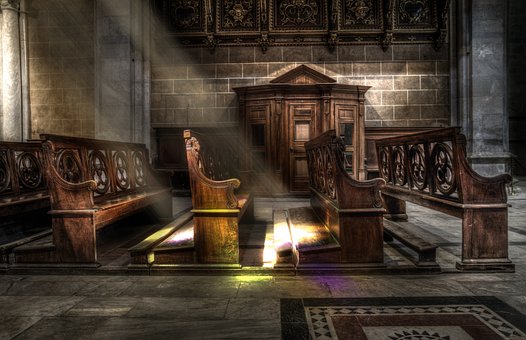Unseated is the epithet we use metaphorically to say that we have fallen, not from our chair, worse, from our horse. The horse of its own certainties which gallops, with blinkers, towards what we take for reality. Saul, a Pharisee from Tarsus, goes on the road to Damascus to continue his work of extermination of the disciples of Jesus. It is then that the latter’s voice asks him why he persecutes him, Jesus, who is his lord. Also according to the Acts of the Apostles, the persecutor of Christians loses his sight for three days. Following which, he was baptized and healed: Saul became Paul, he wrote epistles which were incorporated into the New Testament.
The episode of the road to Damascus is a well-known motif in Christian iconography. For proof: the Caravaggio of the Basilica of Saint Mary of the People in Rome, where the future apostle as a hairless young man, and with his eyes closed, is represented overwhelmed by the divine light, near his horse… Horse gold, he there was none. Florence Delay has read and reread the passage in vain: no canasson! The absence of the animal in this Damascene sequence underlines the omnipresence of beasts in the Christian imagination. His latest book There’s no horse on the road to Damascus is a veritable bestiary in the form of a reflection on the place of animals in the spirituality of the religion of the living God. The writer who embodied the saint from Domrémoise in Trial of Joan of Arc by Robert Bresson (1962) does not fail to point out its importance in The golden legend of Jacques de Voragine and other hagiographies.
As early as the Deluge affair, it is a dove which, returning with an olive branch in its beak, announces to Noah the ebb of the waters. The holy hermit Jerome has the lion as his companion, the emblems of the evangelists (apart from Matthew) are the same big beast for Mark, the ox for Luke, the eagle for John. Very popular in the Iberian Peninsula, another father of the desert, Antoine said the Great (to distinguish him from his medieval namesake from Padua), is represented flanked by a pig, which he miraculously restored to health. The affection of the anchorite for his porcine friend, like the love of Saint John for the Lamb of God, is such that it constitutes the yardstick by which one measures his human love. Sant Antoni es va enamorar d’un pig, sant Joan d’un be, i jo de vostè (“Saint Anthony fell in love with a pig, Saint John with a sheep, and I with you”, a Catalan saying). Closer still to Christ: the donkey carrying Mary, then pregnant with the future messiah, and his stable mate, the ox, who saw the baby Jesus born in the manger. Marvelous of joy, tenderness of welcome, innocence of gaze… For Florence Delaywho braids memories and erudition in this pretty hybrid text between Memoirs and reflection, animals are “ the spirit of childhood found.
Florence Delay
There’s no horse on the road to Damascus
Threshold
Edition: 2,500 copies.
Price: €18; 192 p.
ISBN: 9782021488562

